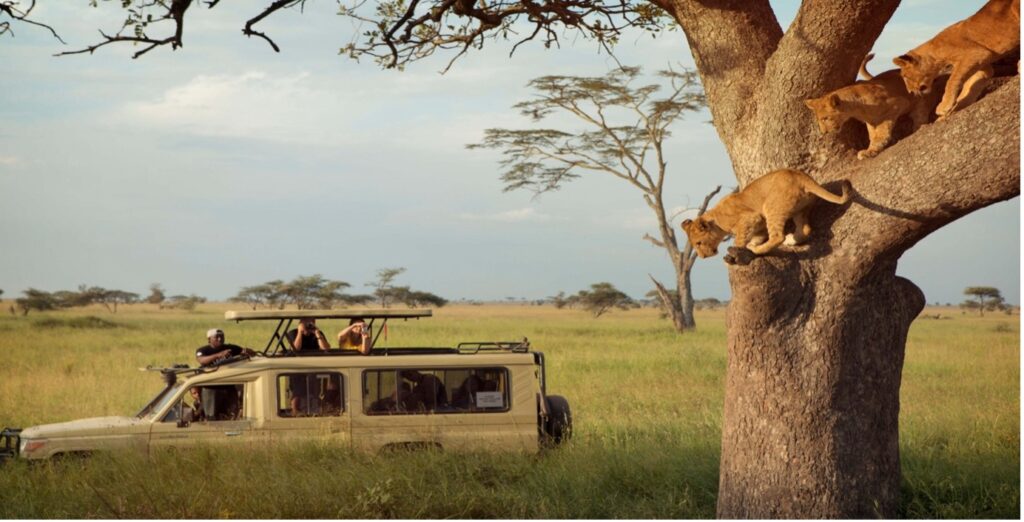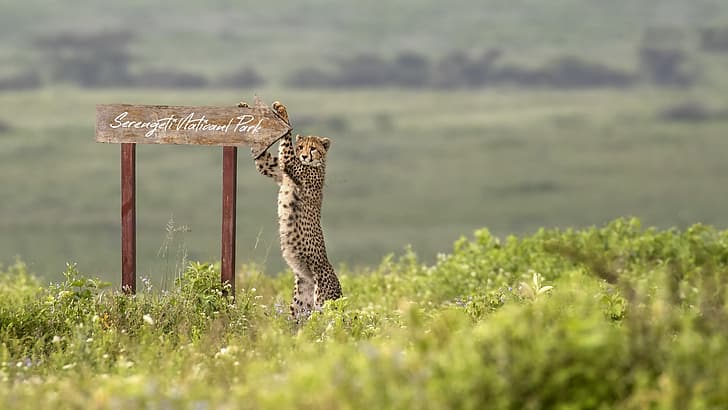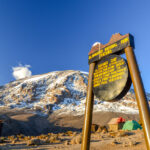Embarking on a safari adventure brings you face to face with Africa’s majestic wildlife in their natural habitat. While these encounters are thrilling and awe-inspiring, it is essential to prioritize safety and respect for the animals and their environment. At Kermali Tours & Safaris Ltd., we believe that a well-prepared safari-goer is a safe safari-goer. In this comprehensive survival guide, we provide you with essential tips and guidelines to navigate wildlife encounters safely, ensuring a memorable and secure safari experience.

1. Listen to Your Guide:
Our experienced guides are your greatest allies on safari. Listen carefully to their instructions and follow their lead during encounters with wildlife. They are trained to read animal behavior and will keep you at a safe distance from potentially dangerous situations.
2. Keep a Safe Distance:
Maintain a respectful distance from wild animals at all times. Avoid approaching or attempting to touch them, as this can cause stress and provoke aggressive behavior. The “rule of thumb” is to stay at least 20 meters (66 feet) away from most animals and even farther from predators like lions and leopards.
3. Stay in the Vehicle:
During game drives, remain inside the safari vehicle unless instructed otherwise by your guide. The vehicle serves as a protective barrier and allows you to observe wildlife without causing disturbances.

4. Observe Quietly and Calmly:
Wild animals are sensitive to noise and sudden movements. Speak softly and avoid loud noises or sudden gestures that may startle or stress the animals.
5. Never Feed the Animals:
Feeding wildlife is strictly prohibited. Human food can be harmful to animals, and feeding them alters their natural behaviors, making them dependent on handouts and potentially aggressive.
6. No Flash Photography at Night:
Avoid using flash photography when photographing nocturnal animals. Bright lights can disorientate and distress the animals, affecting their hunting or foraging abilities.
7. Be Cautious During Breeding Seasons:
During breeding seasons, some animals may exhibit more aggressive behavior to protect their young. Always give breeding animals extra space and be especially cautious around mothers with offspring.

8. Be Prepared for Encounters on Foot:
If you’re participating in walking safaris or nature walks, listen attentively to your guide’s instructions and maintain a single-file formation. Never run in the presence of wildlife, as this may trigger a chase response.
9. Respect the Habitat:
Be mindful of the environment and respect the animals’ natural habitat. Avoid littering and follow the “Leave No Trace” principles to minimize your impact on the ecosystem.
Conclusion:
A safari is an incredible opportunity to witness wildlife in its natural environment. By adhering to these safety guidelines and respecting the animals and their habitat, you can have a secure and enriching safari experience. At Kermali Tours & Safaris Ltd., our priority is your safety and the conservation of Africa’s precious wildlife. With the knowledge and expertise of our local safari guides, you can enjoy unforgettable encounters while fostering a deep appreciation for the wonders of the animal kingdom.







